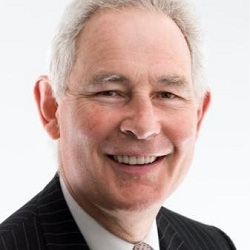
Beringer: Lawyers don’t get a special pass
Commercial law firms must be prepared to publicly justify acting for controversial clients and not hide behind professional arguments like access to justice, the former senior partner of Allen & Overy has told Legal Futures.
Guy Beringer said: “Some firms still argue that it’s a matter of access to justice and the rule of law if an extraordinarily wealthy person can get representation to buy a superyacht. We’re thinking, ‘we haven’t been able to find that principle’.”
That did not mean they should not take on such clients, but they had to acknowledge that this was a commercial decision first and foremost.
Mr Beringer is chairing the Institute of Business Ethics’ newly launched taskforce on business ethics and the legal profession, focusing on solicitors who provide civil legal services to overseas oligarchs and kleptocrats.
In an interview with Legal Futures, the solicitor argued that taking on new clients was not governed purely by professional rules.
“Firms are taking commercial decisions when they decide who to act for and ought to be subject to same constraints that other sectors are, in terms of business ethics, ESG, reporting requirements and everything else.”
He stressed he was not talking about criminal matters, where access to justice and the right to representation were the primary considerations.
“What’s happening is that the legal sector is coming into the mainstream world, which is part of why we’re hosted by the Institute of Business Ethics. Elements of this will relate to professional rules but a lot will relate to what are the business ethical values adopted by firms.”
Though this push for greater transparency could rub up against client confidentiality, Mr Beringer said this was an example of “overplaying the professional card” – it “would probably not stop you being more accountable publicly for what you do”.
Mr Beringer looked back to the rise of boutique litigation firms in the City, driven by the big firms not acting against banks on the grounds of conflicts.
“Actually you could probably have acted against banks but you would have lost clients. So it was a commercial decision… That’s perfectly legitimate but then you have to be accountable for those decisions in the public square in the same way as other entities.”
He added: “We’ve got a tendency to say, because it’s the administration of justice and the rule of law, we’re in a special box, but is that right? I’m not sure it is – for elements it’s right. When you talk about criminal issues it is. But when you talk about these other issues, you’re not. You don’t get a special pass on that.”
Mr Beringer added that the pressure was coming from various sources, including potential recruits asking firms about their values on a range of issues: “The answer doesn’t lie in ‘Go and read the SRA Handbook’.”
This was particularly acute with many law firms advising their clients on ESG (environmental, social, governance) and the like – they could no longer get away with ‘Do as I say, not as I do’.
He suggested that what academics called the ‘standard conception of lawyering’ – that lawyers are neutral instruments of their clients – no longer held good, at least for commercial matters.
“Part of the problem with kleptocrats is that we’re talking about quite a large class of transactions that are not unlawful, so the black-letter rules don’t catch them.”
This is where it could become tricky for law firms, but Mr Beringer said he hoped they “wouldn’t run away from difficult clients” and instead accept the need to be more transparent about their decisions.
He acknowledged that there were not many “signposts” for lawyers at the moment to help them.
Mr Beringer said the taskforce came about after he contacted Professor Robert Barrington, its vice-chair, in the wake of the Sussex University anti-corruption academic’s warning last year that the legal profession was “drawing the ethical boundaries in the wrong place” in its dealings with corrupt kleptocrats and oligarchs, and risked having reforms imposed on it as a result.
They felt that the profession and civil society were not engaging with each other on the topic. “If you’re in the profession and you think there’s going to be change, you want to get ahead of it and shape it rather than wait to be whacked over the head with it and a set of rules that don’t work,” Mr Beringer said.














Leave a Comment